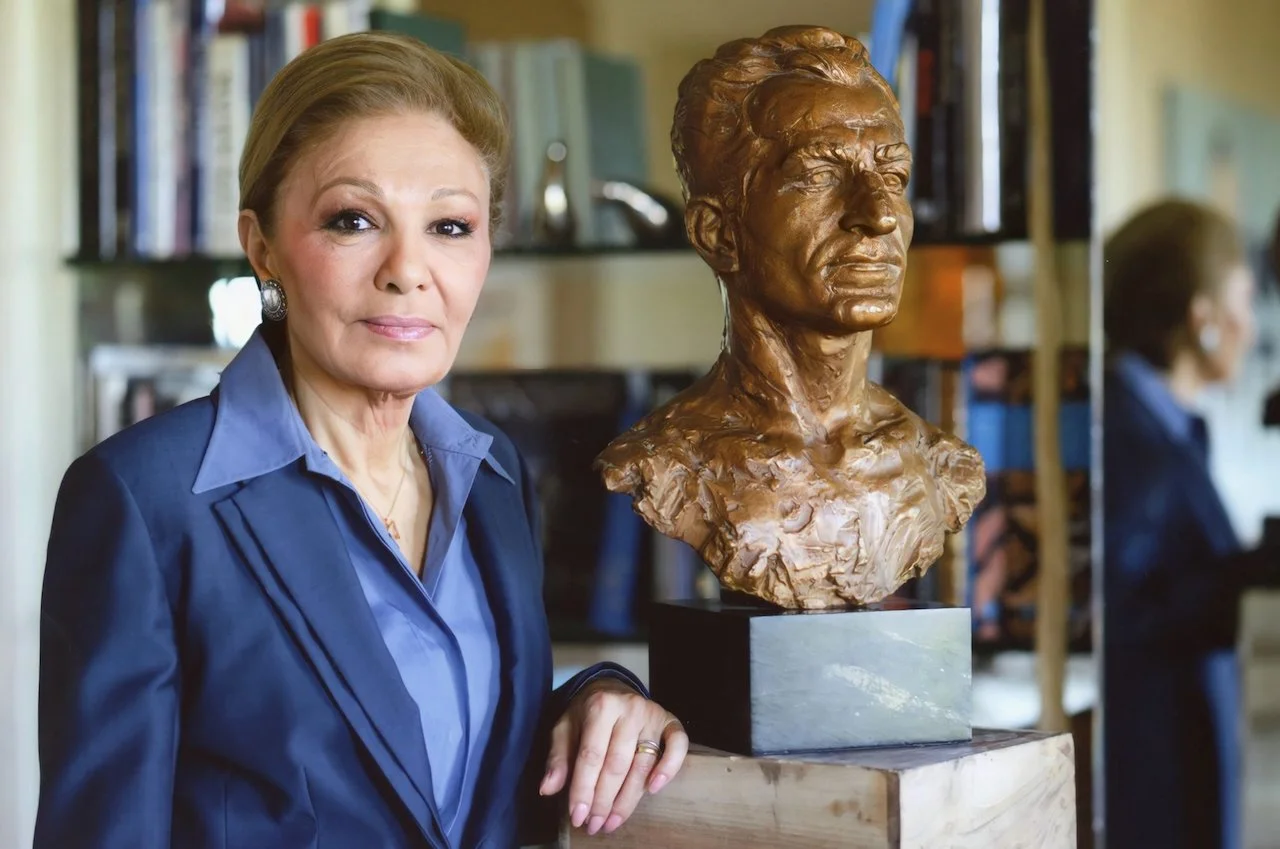-

Bruno Ferreira
Board of Directors
A managing partner at Portuguese law firm PLMJ, he co-heads the Responsible Business team acting on sustainability focused projects and community engagement. He is also a member of the advisory board of Gulbenkian Digital Shift.
-

Bernardo Afonso
Board of Directors
After an extensive career in banking, edtech sectors and public service, he became a Board Member and CFO at Code For All Group , a Non-Executive Director at Maze Impact and a Board Member at CFA Society Portugal. He is also an angel nvestor and lectures at University of Oxford.
-

François Maisonrouge
Advisory Board
He is the Chairman of the Pasteur foundation and a member of the Board of Advisors of the Harvard Business School Health Care Initiative. He was awarded France’s “Ordre National du Merite” and is a Chevalier de la Légion d'honneur.
-

Azadeh Ghotbi
Head of Arts & Culture Commission
She is painter and photographer and an alumnae of Brown University and Insead.
CORE VALUES AND GUIDING PRINCIPLES
Inspired by the pioneering work of HM Farah Pahlavi, the Shahbanou Farah Pahlavi Foundation builds on decades of initiatives in education, public health, social services, arts and culture, and notably, the promotion of women’s rights and inclusion. It bridges Her Majesty’s legacy and global efforts to foster inclusive growth, understanding and dialogue. Amid global challenges, there is a pressing need for platforms that promote cultural dialogue, preserve historical legacies, and inspire collective action for social good. The Foundation uniquely fulfils this objective by focusing on Iran’s rich artistic and historical contributions while addressing modern challenges.
The Shahbanou Farah Pahlavi Foundation is rooted in eight core principles:
Apolitical institution that can preserve the cultural legacy of Her Majesty Farah Pahlavi.
Source of inspiration and positivity to encourage, empower, and mobilise people - in particular women – to come together to change their world.
Advocate for women’s recognition, empowerment and advancement, celebrating their contributions to arts, culture, history, and society.
Initiator of community-based activities, public programmes, academic seminars, performing arts, and cultural events.
Living institution to promote, exhibit, inform, and enlighten about Iran through global dialogue.
Archive and exhibition of legacy demonstrations of Iranian arts and culture.
Virtual centre for research of the history of Iran and the evolution of contemporary Iranian society, culture, and arts.
Create and maintain a physical and digital repository of Her Majesty’s lifetime of work. A library of archival material (imagery, articles, books, artworks, etc.) complemented by a freely accessible website aimed to be the comprehensive resource base through hosted content as well as referrals and links to outside sources as an incubator and catalyst (i.e. academic institutions, cultural centres, etc.).
Iran’s history is a common denominator of the Shahbanou Farah Pahlavi Foundation as the starting point towards an inclusive global society with an eye on present-day and future social and cultural matters.
STRATEGIC OBJECTIVES
The Shahbanou Farah Pahlavi Foundation exists to perpetuate the legacy of the work, values, and principles promoted by HM Farah Pahlavi. This legacy is codified under Farah Pahlavi’s Way, which is embedded across the Foundation in its operations and philanthropic activities. As a result of its work, the Shahbanou Farah Pahlavi Foundation has the following strategic objectives:
• Empower and uplift women across the world through entrepreneurship, science, education, sports, leadership, and participatory citizenship.
• Promote global dialogue in arts, culture, and history, with a reference to Iran.
The strategic objectives of the Shahbanou Farah Pahlavi Foundation are to be achieved through an underlying core assumption: partnerships. Partnering with other organisations amplifies the reach, efficiency, and effectiveness of philanthropic tools and enables:
Shared expertise: Collaborating with academic institutions, NGOs, or governmental bodies allows the Foundation to leverage specialised knowledge and resources.
Mobilisation of resources: Partnerships enable cost-sharing, allowing the Foundation to extend its impact. Co-funded grants or fellowships ensure that more beneficiaries can be supported and cultural activities can reach broader.
Reach: Partner organisations have established networks and local presence, making it easier to identify beneficiaries, monitor progress, and adapt to regional contexts. This is particularly important for international initiatives or those targeting remote communities
Credibility and trust: Partnering with reputable organisations enhances the Foundation’s credibility, fostering trust among stakeholders and beneficiaries. This is especially critical when entering new geographic or thematic areas.
Sustainability: Partnerships create a collaborative ecosystem with larger groups of stakeholders and reduce their reliance on any single funding source, increasing the likelihood of long-term success

